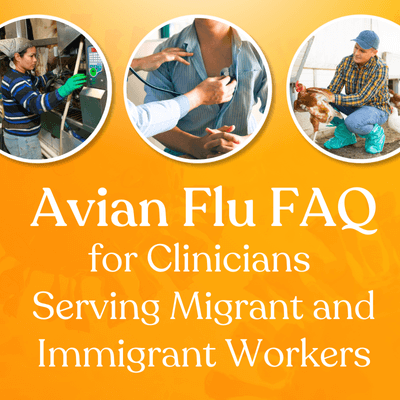American Rescue Plan & Workforce Summit: CHWs & Hyperlocal Campaigns Build COVID Health Equity

MCN's Esther Rojas at the American Rescue Plan and Workforce Summit.
Earlier this month, I had the honor and privilege of attending the American Rescue Plan and Workforce Summit hosted by the White House American Rescue Plan Implementation Team, the White House Office of Intergovernmental Affairs, and headlined by Vice President Kamala Harris. After one nearly sleepless night – I was nervous about the next day’s events -- I made my way two hours from my home to Washington, DC. When I arrived at the White House, I was greeted by four levels of Secret Service and security clearance before entering a labyrinth of rooms and hallways, each one identical to the last. Having finally made my way in, I was joined by several governors, mayors, commissioners, presidential advisors, and the Director of the Communities RISE Together Initiative at the Public Health Institute, Dr. Somava Saha.
The event’s roundtable and panel session featured these state and local leaders investing American Rescue Plan (ARP) dollars in their communities to expand and develop public health initiatives, infrastructure, and workforce. Through Migrant Clinicians Network, I worked with community-based organizations focusing on the training and technical assistance of community health workers, building their capacity to be trusted messengers in their communities’ COVID-19 vaccine awareness campaigns.

MCN's Esther Rojas and Dr. Somava Saha at the White House.
Dr. Saha has worked in conjunction with MCN to recruit, hire, and train Community Health Workers (CHWs) or promotores de salud to reach BIPOC, immigrant/migrant, and rural communities across the US. I was there to represent MCN’s approach to CHW education in hopes that such critical practices can grow across the country. This approach enabled hundreds of CHWs to build their personal and professional capacities in communication and health promotion to successfully implement tailored outreach and education programs in their communities.
At this point, the true magnitude of the event began to set in as White House Coordinator for the American Rescue Plan, Gene Sperling, and Secretary of Labor, Marty Walsh, began their opening statements. During this roundtable and each panel, we heard from state and local leaders about how profound the impact of the ARP has been on their communities. Each speaker shared how aspects of the ARP have supported and funded diverse groups in their communities, strengthening and expanding access to the workforce for underserved populations. With many key speakers gathered at the table, one thing was clear: each community that received funds from the ARP saw a true and distinct change in the lives of individuals who gained access to professional development and career track programs.

As the pandemic exposed vulnerabilities and pushed public health systems to their limit, the ARP gave access to communities experiencing inequities by building on existing networks and providing resources, training, and support in hyperlocal COVID-19 vaccine awareness campaigns. Trusted messengers and local community leaders were made vaccine ambassadors so they could discuss myths and misinformation within their communities, combating vaccine hesitancy at the root cause. They are able to bring culturally competent messaging with a personal touch to talk to people they have known their whole lives about how they can protect themselves during a dangerous pandemic. Dr. Saha expressed that with ARP funding the “abundance and equity lies in trusting those who are closest to the problems to lead the solutions.” State and local leaders shared stories from their communities, like one low-income mother in Delaware who was able to gain the confidence and professional skills to become a CHW and is now connecting others to COVID-19 resources and beyond.
Through the course of the day, I thought a lot of the promotores de salud and CHWs who participated in weekly learning collaborative sessions with MCN. We often discussed the challenging climate surrounding COVID-19 vaccines and their push to protect their families, friends, and neighbors. Some of the CHWs were lifelong health advocates, who had completed years of work with little to no pay. They built trusting relationships with their communities and with funding were able to further amplify their work to reach vulnerable Black, indigenous, migrant, immigrant, and rural communities. Organizations like Alianza Nacional de Campesinas and the Rural Coalition have worked to mobilize these key relationships to promote the health and well-being of hardly reached populations throughout the pandemic.

MCN's Esther Rojas and Taylor Windmiller gather with organizations to provide resources and information.
While the ARP enabled many communities to step up to the challenge of communication around COVID-19, it is just the start. A pathway to ensuring sustainability for the continued success of CHWs and promotores de salud is the prioritization of critical pieces like training and technical assistance backed by support from state and local agencies. Our public health institutes must continue to value and fund the work of CHWs and promotores de salud to ensure that the hardest-to-reach communities are not left behind when a crisis strikes. In the meantime, the pandemic is not over. Here are some of the excellent customizable and multilingual materials that MCN has developed to assist CHWs and other community health advocates to build effective local COVID campaigns tailored to their communities.
Got some good news to share? Contact us on our social media pages above.
Return to the main blog page or sign up for blog updates here.
- Log in to post comments






